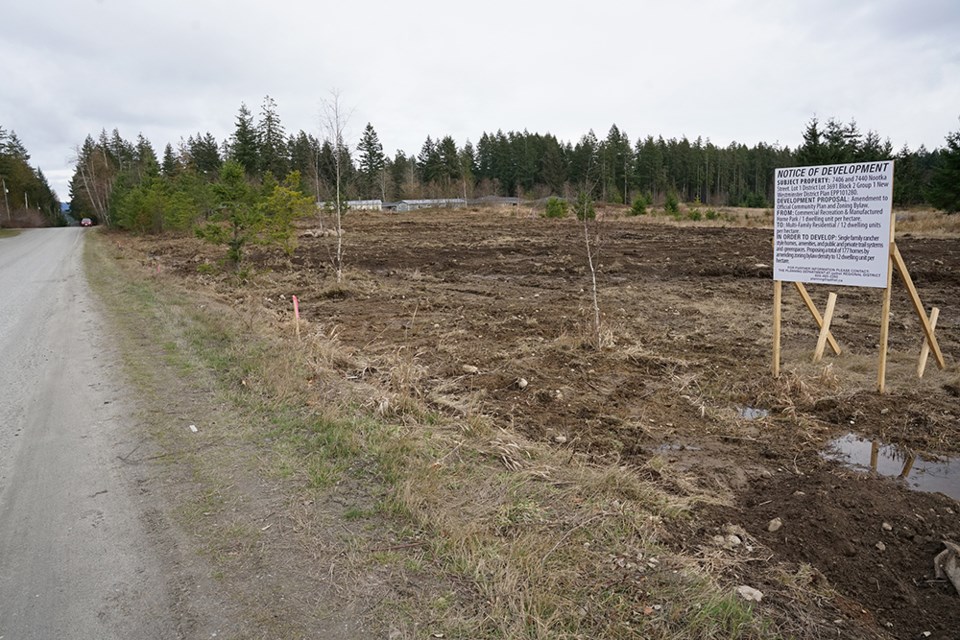qathet Regional District directors have received an application for an official community plan and zoning bylaw amendment for a proposed 177 property development at 7406 and 7440 Nootka Street.
At the February 22 regional board meeting, directors voted to receive the application subject to three conditions.
The first was that the proponent contract a qualified professional to complete a services capacity analysis to determine a viable water and sewer servicing approach, meeting provincial standards, and providing adequate assurance of water supply for fire protection.
The second condition was that the applicant contract a qualified professional to complete a traffic impact study for Nootka Street.
The third was that the applicant host a public information meeting to present the proposed application following the two required studies.
Electoral Area B director Mark Gisborne, in whose electoral area the proposed development is situated, said if he was the proponent, he would host a public information meeting before doing the service capacity and traffic impact studies, just to see what the community appetite is for spending the money required.
“I just see this adding an expense to them [the developer] and from what I’ve been hearing, I don’t see a lot of support in the community from one dwelling per hectare to 12 dwellings per hectare,” said Gisborne.
He said his understanding was that the proposal was for residences of 1,300 square feet on the lots, but if the amended zoning bylaw is approved, there’s nothing to stop the developer from putting 3,000 to 4,000 square foot houses on the properties.
“That’s not how the bylaw is written and that’s why I don’t support this motion,” said Gisborne.
Supports motion
Electoral Area D director Sandy McCormick said she did support the motion and that it was important for the studies to take place before the public information meeting.
“It’s a tough one because it is a huge increase in density, but on the other hand, we desperately need more housing,” said McCormick. “Finding the right balance in that mix will be furthered by the recommendations contained in this motion.”
Electoral Area C director and board chair Clay Brander said he also supported the motion.
“The proponent is going through the proper procedures,” said Brander. “I see the public information sessions having the stipulation that they complete the services capacity analysis and traffic impact study ahead of time making sense because they [the developers] then have information to impart to the populace, saying this is what the studies have shown.
“Whatever they want to do ahead of time as far as gathering public information is up to them, but for us to receive the application, I like what staff have laid out here.”
Gisborne said one of the items heard at the recent local government leadership academy session that directors attended was that local government is making decisions without all the information, and in some cases, with imperfect information.
“We have enough information in our official community plan to actually make a decision on going from one dwelling per hectare to 12 dwellings per hectare,” said Gisborne. “The official community plan says we want to protect the rural area and that is the priority of the natural environment over the built environment. This proposal puts the built environment over the natural environment.”
City director Cindy Elliott, who was not entitled to vote on the application, said if community engagement proceeded ahead of the studies, and then the developer wanted to proceed, they would have to do the engagement again, because the information from the studies would be important for the community.
“The process that has been proposed is a good process,” said Elliott. “It’s not a process to approve a particular thing, it’s a process to get all the information and then do community engagement. We are not approving the application, we are approving requiring some information and a process that runs on community engagement after the information is gathered. It’s more cost-effective that way.”
The board carried the motion, with Gisborne opposed.



